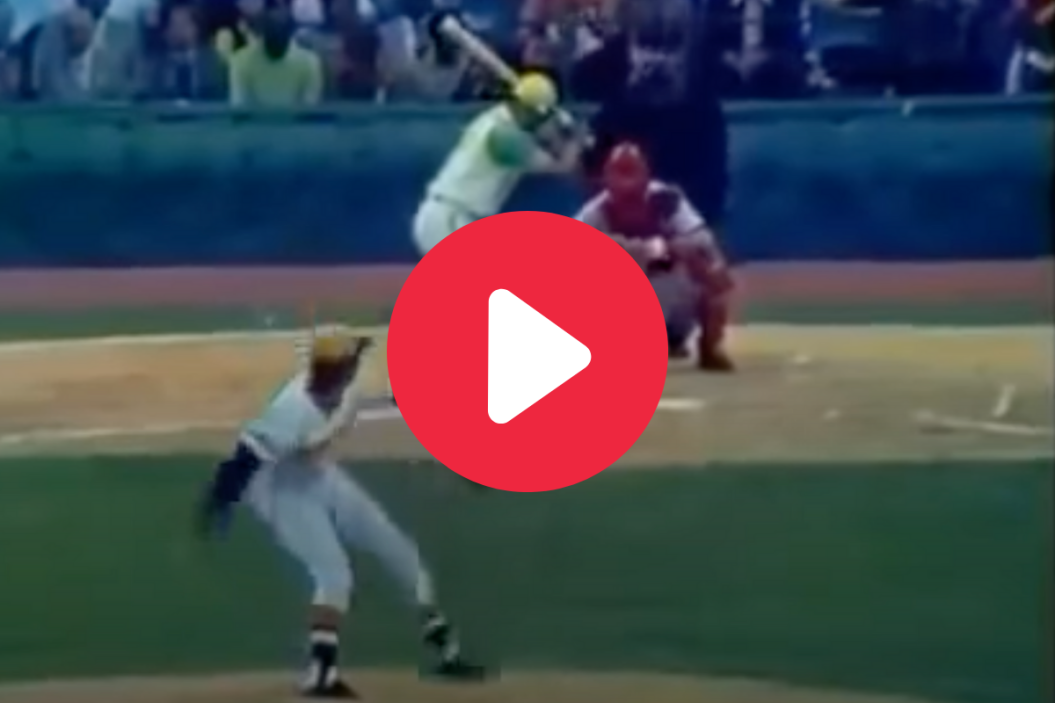Reggie Jackson was known as "Mr. October," but you could have arguably called him "Mr. July" if All-Star Games were considered as important as the playoffs.
Videos by FanBuzz
The legendary right fielder's prowess in the postseason, where he won five championship rings and two respective World Series MVP awards for the Oakland Athletics and New York Yankees, is what defined the Hall of Famer's MLB career.
Before all that, though, one monster home run wowed folks and made All-Star Game history.
Reggie Jackson's ASG Home Run
RELATED: Relive the Night Reggie Jackson Became "Mr. October"
First, a little bit of backstory leading up to Jackson stepping to the plate at the 1971 rendition of MLB's Midsummer Classic.
Jackson began his career with the Kansas City Athletics in 1967, one year before the team moved to its current home in Oakland. He made his first All-Star Game with the Oakland A's in 1969, when he led the American League in slugging percentage and OPS. His second Midsummer Classic appearance was at the 1971 All-Star Game in Detroit, where the Hall-of-Fame hitter showed the literal definition of "light-tower power."
The 1971 MLB All-Star Game was loaded with talent. Six different players hit home runs, and all of them were future Cooperstown inductees. We're talking guys like Hank Aaron, Roberto Clemente and Harmon Killebrew. And yet, Jackson overshadowed them all that day.
In the bottom of the third inning, Jackson entered the game to take an at-bat for pitcher Vida Blue. The slugger faced off against the Pittsburgh Pirates' Dock Ellis, who was on the mound for the National League. Also, Ellis famously may or may not have thrown a no-hitter on LSD, but that's a story for another day.
Jackson made the most of his pinch-hit at-bat. The future "Mr. October" got a pitch he could absolutely wallop. In the box score, it was a two-run homer. In action, it was more than a couple RBIs for Jackson.
Today in 1971, Reggie Jackson electrifies the All-Star Game crowd by blasting a majestic bomb that clangs off a transformer on the roof of Tiger Stadium.
— Super 70s Sports (@Super70sSports) July 13, 2020
The ball absolutely soared into right field. In fact, it threatened to leave the ballpark entirely. However, it hit a light transformer on the right field roof ,which is the only thing that kept it in the stadium. It was one of the longest home runs anybody has ever seen, reportedly up to 539 feet from home plate.
That puts it up there with legendary home runs from the likes of Babe Ruth and Mickey Mantle. It's the kind of homer that would give Ellis flashbacks even without the LSD. Frank Robinson was named the MVP of the game, but Jackson was the talk of Major League Baseball.
Jackson would have more important hits in his career, but for sheer impact, few can match this one home run. Oh by the way, Jackson went on to clear the Tiger Stadium roof in 1984 with the now-Los Angeles Angels (then the California Angels), but that's a story for another day.
